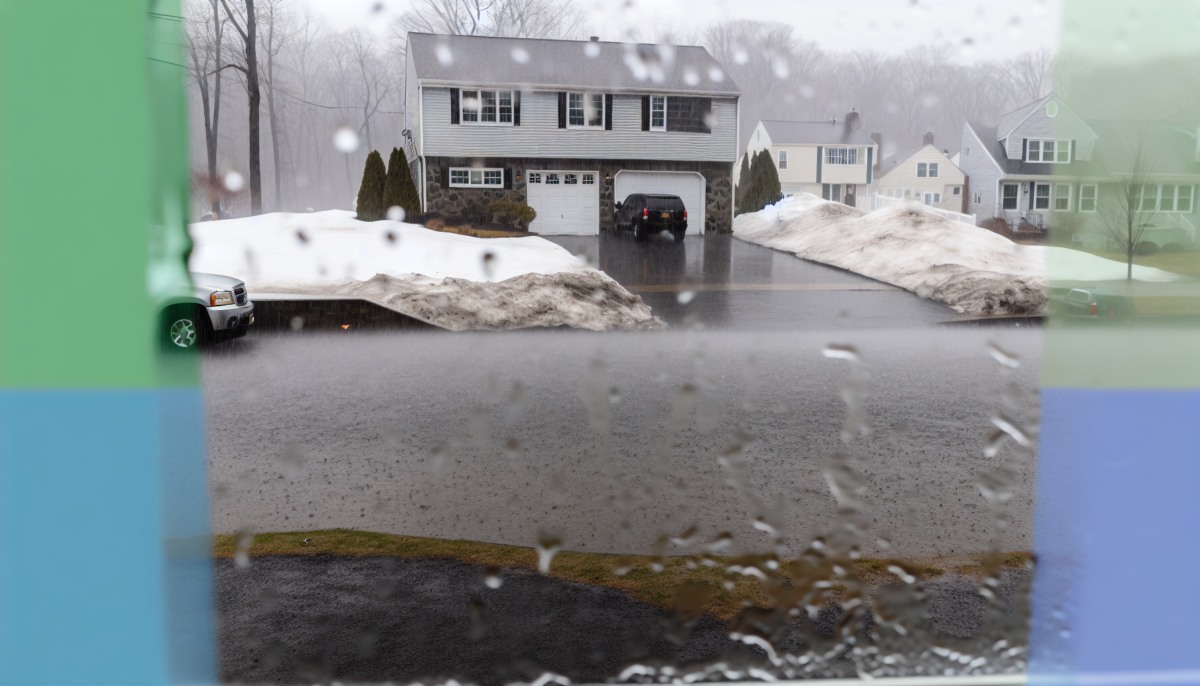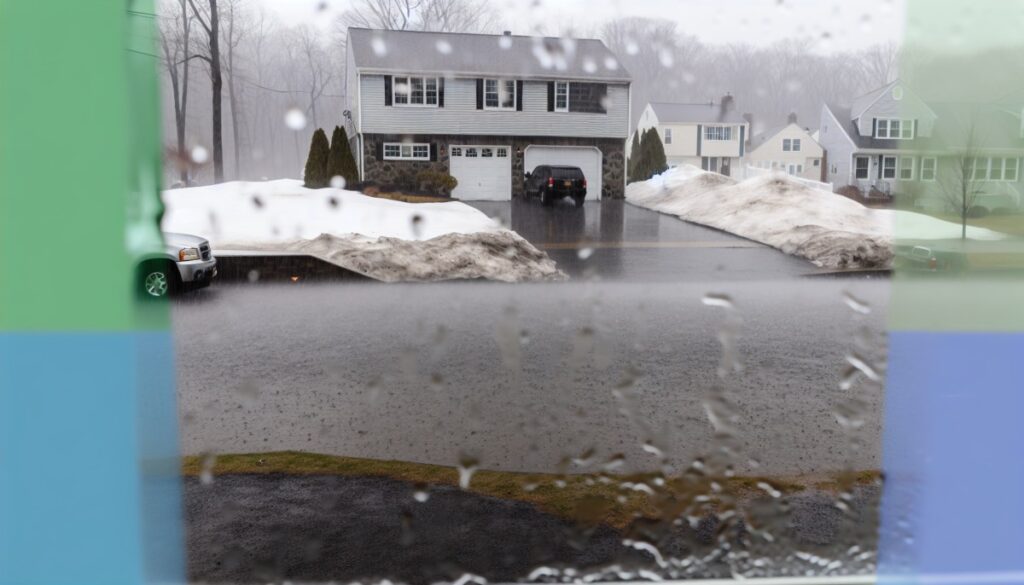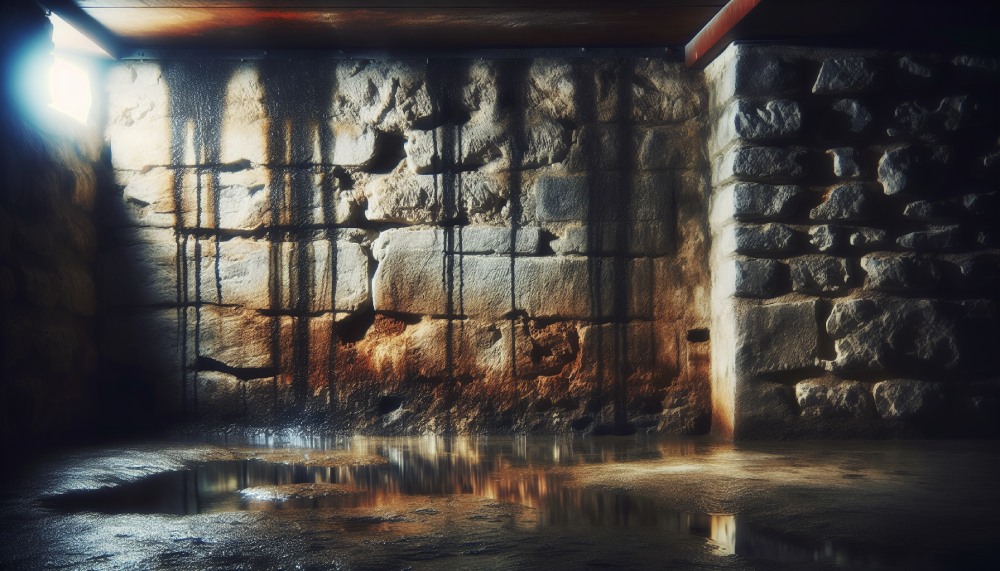

Imagine waking up one rainy morning to find your basement transformed into an indoor swimming pool. Your cherished belongings are floating around, and the dampness is creeping up the walls. As a homeowner in New Jersey, this could be your reality if you don’t take necessary precautions. One such vital step is basement waterproofing – a shield against water damage and a ticket to peace of mind.
Key Takeaways
- Basement waterproofing is essential in New Jersey due to its climate and geographical factors.
- Identifying signs of moisture issues & taking proactive measures can help prevent costly repairs, mold growth, and decreased property value.
- Professional services provide expertise & warranties for long-term protection while DIY solutions may be cost effective but riskier.
Understanding the Necessity of Basement Waterproofing in New Jersey
Waterproofing your basement is not a luxury; it’s a necessity, particularly in New Jersey. The state’s unique climate and geographical factors make basements prone to dampness and potential water damage. But what exactly are these issues, and how do they affect your basement?
We will further analyze these factors.
New Jersey’s Climate Challenges
New Jersey’s climate, characterized by heavy rainfall and significant snowmelt, contributes to the risk of basement moisture issues. The state’s annual precipitation is relatively high, with an average of 45 inches of rainfall. This, coupled with the diverse types of soil, affects water drainage significantly.
For instance, clay soil can become waterlogged due to poor drainage, while sandy soil drains water at a faster rate. These climate challenges underscore the need for effective basement waterproofing in New Jersey homes.
The Perils of Water Damage
Water damage in a basement is an unwelcome guest that brings along a host of problems. These can lead to structural issues, mold growth, and decreased property value if not promptly addressed. Imagine the horror of discovering black mold spots on your basement walls or the heartbreak of learning that your property value has plummeted due to unresolved water damage.
Potential nightmares caused by leaky basements can be avoided by implementing a comprehensive interior basement waterproofing system, which also benefits crawl spaces and addresses the wet basement issue.
Spotting the Telltale Signs of Basement Moisture Issues

Before you can fight the enemy, you must recognize its signs. The same applies to basement moisture issues. Identifying the telltale signs can save you a lot of trouble and expenses down the line. Learning to recognize these signs is beneficial.
Water Marks and Efflorescence

Water marks and efflorescence – a white, powdery substance – on your basement walls or foundation walls are neon signs screaming moisture infiltration. These signs indicate the need for waterproofing to create a dry, livable basement.
Musty Odors and Mold Growth
Ever walked into a room and been hit by a musty odor? That’s a classic sign of a moisture problem. Musty odors and mold growth in your basement indicate moisture issues that can be remedied through proper waterproofing. Ignoring these signs can lead to health problems and damage to your home’s structure.
Comparing DIY and Professional Waterproofing Approaches
Deciding on the appropriate method for waterproofing your basement can be tricky, particularly when weighing DIY against professional services. Both methods have their pros and cons, and the best choice depends on your situation.
We will analyze these two approaches.
Evaluating DIY Waterproofing Solutions
DIY waterproofing solutions can be tempting, especially when you consider the potential cost savings. From applying waterproofing paint to installing a simple drainage system, such as a french drain, these methods seem cost-effective and doable. However, they may not provide long-lasting protection and may void product warranties.
Also, without professional knowledge and skills, you may end up with an imperfect solution that doesn’t fully address the moisture issues.
The Advantages of Professional Services
On the flip side, professional waterproofing services bring expertise and tailor-made solutions to the table. They conduct a comprehensive evaluation of your basement’s condition, identify the root cause of the moisture problem, and offer a customized solution.
Apart from their expertise, professionals also provide a warranty for their work, assuring you of long-term protection and peace of mind.
Selecting the Right Waterproofing Method for Your Home
Now that you understand the difference between DIY and professional waterproofing, it’s time to explore the different waterproofing methods. The right method depends on various factors such as the extent of moisture issues, your budget, and the desired level of protection.
We will examine these methods.
Interior vs. Exterior Waterproofing
Interior and exterior waterproofing each offer different levels of protection and come with their respective costs. Interior waterproofing involves the application of sealants and paints, which are simple to implement. However, they don’t address the external source of moisture.
On the other hand, exterior techniques for exterior walls often require excavation and professional expertise, significantly increasing the project’s cost. However, they address the root cause of moisture issues, providing a more effective solution.
Innovative Waterproofing Products
In this era of technological advancements, the market is flooded with innovative products for waterproofing basement walls, especially for concrete walls. These include concrete coatings, silicate-based sealers, and acrylic paints that cater to various needs and budgets. These products not only provide waterproofing solutions but also add an aesthetic appeal to your basement.
Steps to Prepare for Basement Waterproofing
Before starting the waterproofing process, it’s necessary to prepare your basement properly. This includes clearing the area of belongings and repairing any existing cracks or holes in the walls and floors.
We will look at these preparatory steps.
Clearing the Area
A clean and clear basement area ensures a smooth waterproofing process and prevents damage to your belongings. It’s like preparing a clean canvas for a masterpiece painting. You need to remove any furniture and personal items to provide enough space for the waterproofing process.
Repairing Cracks and Holes
Repairing cracks and holes is like mending broken stitches. Before applying waterproofing materials, you need to ensure that your basement has a solid foundation. This involves filling in any existing cracks or holes to create a smooth surface for the waterproofing material to adhere to.
Maintaining Your Dry Basement Post-Waterproofing
After the waterproofing process, maintaining a dry basement is equally important. Regular inspections and proactive measures can help prevent future moisture issues and prolong the effectiveness of the waterproofing. We will analyze these maintenance steps.
Routine Inspections
Just like regular check-ups keep you healthy, routine inspections keep your basement dry. These inspections help identify potential moisture issues early and allow for timely repairs and maintenance.
It’s like catching a small leak before it turns into a flood.
Proactive Measures
Don’t wait for a problem to occur; instead, take proactive measures to prevent them. These include:
- maintaining gutters
- grading the yard
- installing a sump pump
- sealing cracks in the foundation
- using a dehumidifier
These actions can help prevent basement leaks, basement foundation moisture issues, and protect your basement wall.
It’s like wearing a raincoat to prevent getting wet rather than drying your clothes after getting soaked.
Understanding Local Regulations and Permits in New Jersey
Just like driving requires a license, certain home improvement projects, such as basement waterproofing, may require permits. Adhering to local regulations and obtaining necessary permits in New Jersey ensures compliance with building codes and a successful waterproofing project.
We will examine these regulations and permits.
Compliance with Building Codes
Building codes are like the rulebook for construction. They ensure the safety and structural integrity of homes. Compliance with these codes is crucial for any home improvement project, including basement waterproofing.
Permit Requirements
Permits are like tickets to a concert – you need them to get in. For basement waterproofing, you may need to obtain a permit, especially for projects like foundation repairs or excavations.
Permits ensure that you follow the correct procedures and abide by the local regulations.
The Long-Term Value of Waterproofing Your Basement
Waterproofing your basement is like an investment that yields long-term benefits. It prevents structural damage, improves indoor air quality, and even increases your home’s resale value.
We will scrutinize these benefits in more detail.
Preventing Structural Damage
Waterproofing is like a vaccine for your home; it prevents harmful elements like water and moisture from causing structural damage. It keeps the integrity of your home intact, saving you from costly repairs in the future.
Boosting Home Resale Value
Apart from preventing damage, basement waterproofing also adds value to your home. It’s like adding a new feature to your car; it makes it more attractive to potential buyers. In fact, basement waterproofing can increase your home’s resale value by up to 30%.
Summary
Waterproofing your basement is not just about preventing water damage; it’s about maintaining the health and value of your home. It’s about creating a dry, comfortable space that you can utilize without worrying about dampness or mold. It’s about making a wise investment that brings peace of mind and long-term benefits. So, don’t wait till you’re knee-deep in water; take the plunge and waterproof your basement today!
Frequently Asked Questions
What is the most effective way to waterproof a basement?
The most effective way to waterproof a basement is to use negative-side waterproofing membranes from the inside or the interior (dry) side of the building. Additionally, epoxy, polyurethane and cementitious materials are all common and effective materials for waterproofing. For severe problems, epoxy and polyurethane tend to work best.
Can I waterproof my basement myself?
It is possible to waterproof your basement yourself, however, there are several considerations that must be taken into account before you decide to do so. It may take you longer than a professional would and require specialized skills and expertise.
Can you waterproof basement walls from the inside?
Yes, you can waterproof basement walls from the inside through interior basement waterproofing. This is an effective and less offensive alternative to exterior waterproofing.
What are the signs of moisture issues in my basement?
Look out for water marks, efflorescence, musty odors, and mold growth, which are indicative of moisture issues in your basement.
What proactive measures can I take to maintain a dry basement?
Regularly inspect your gutters and grading around your yard, as this can help prevent moisture seeping into your basement. Additionally, ensure you direct water away from your foundation with downspouts and splash blocks.
